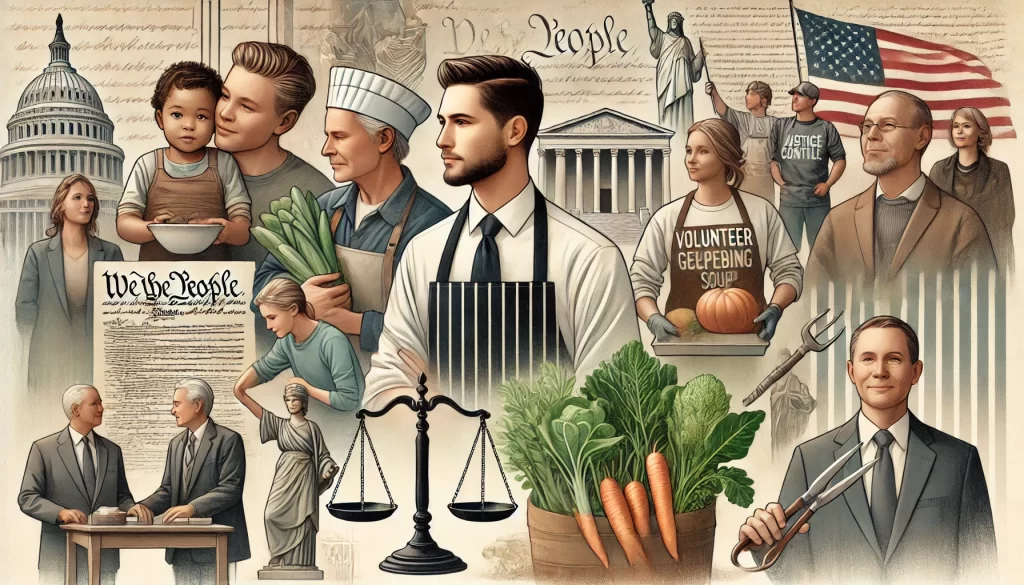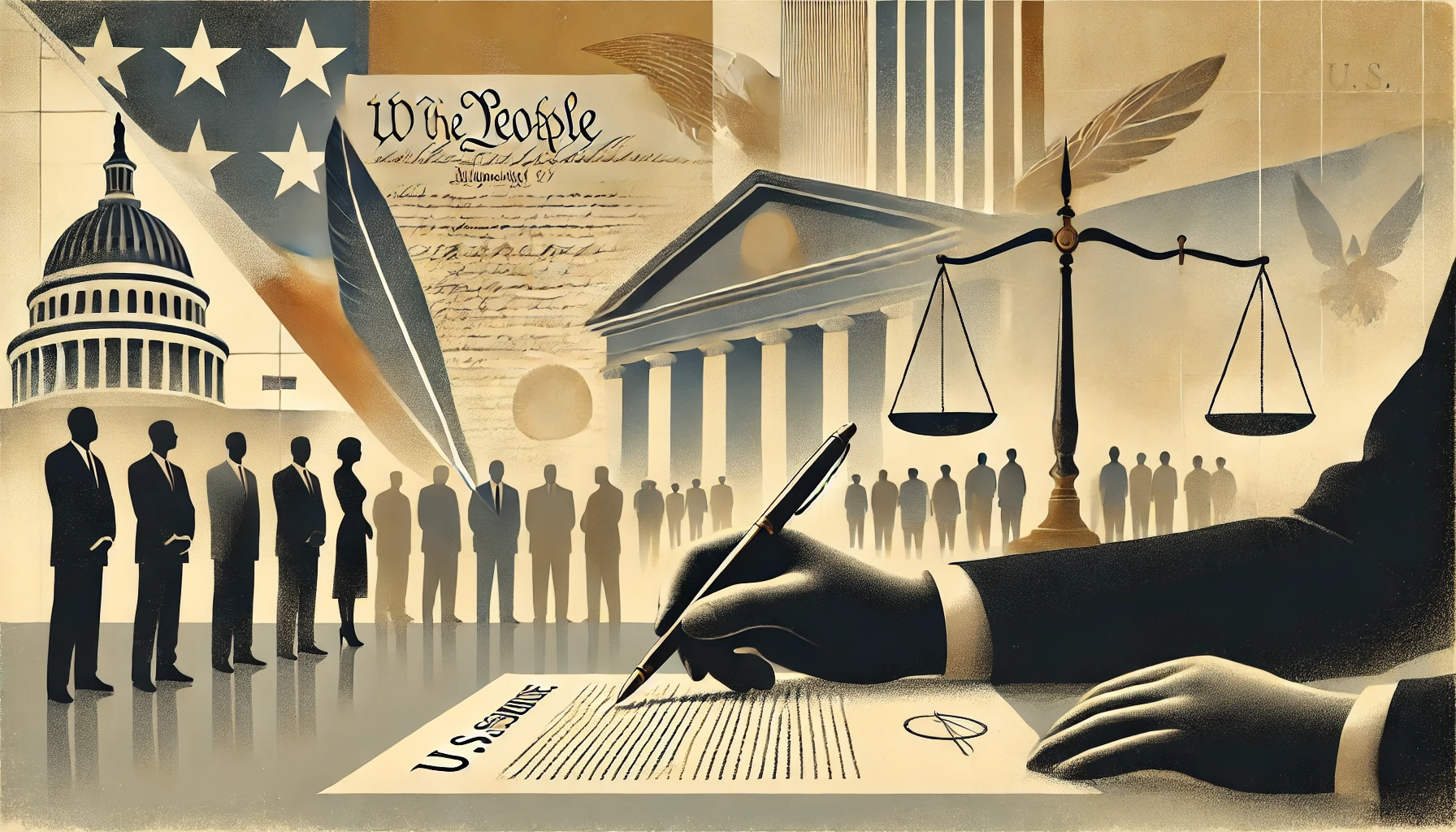On December 12, 2024, President Joe Biden made history by commuting the sentences of nearly 1,500 individuals and pardoning 39 others. The White House described this as the largest single-day use of presidential clemency powers in modern U.S. history. These acts of clemency reflect Biden’s commitment to criminal justice reform and providing second chances to deserving individuals.
Who Received Clemency?
The commutations primarily affected individuals who had been moved to home confinement during the COVID-19 pandemic. These individuals were serving lengthy sentences that would likely have been shorter under current laws. In many cases, these sentences stemmed from outdated legal practices, particularly for drug-related offenses.
The pardons were granted to 39 individuals convicted of nonviolent crimes, many of whom had turned their lives around by contributing to their communities. For example, Terence Anthony Jackson, from Seattle, works as a barber for children in need, is employed in the legal field, and is pursuing a degree. Similarly, Michael Gary Pelletier, from Maine, grows vegetables for a local soup kitchen and serves on his county’s hazmat team. Another recipient, Emily Good Nelson from Indianapolis, works as a counselor in a psychiatric facility and speaks publicly about drug recovery..
Biden’s Statement
“America was built on the promise of possibility and second chances,” President Biden said in a statement. He emphasized that the commutations and pardons aim to reunite families, strengthen communities, and help individuals reintegrate into society. He also highlighted that many of those who received clemency would have received shorter sentences if tried under today’s laws.
Why This Matters
This action reflects Biden’s broader efforts to address criminal justice reform. As a senator, he supported a 1994 crime bill that has since been criticized for contributing to mass incarceration. Since then, he has expressed regret for his role in the bill and committed to making reforms. His administration has worked to reduce sentencing disparities, particularly for drug offenses, and to support rehabilitation.
Many of the individuals who received commutations had been living successfully in home confinement for at least a year. Biden noted that these individuals had proven they deserved a second chance.

Broader Context
This decision comes at the end of Biden’s presidency, as he prepares to hand over the White House to President-elect Donald Trump in January. The announcement followed a controversial pardon earlier in the month for his son, Hunter Biden, who had faced gun and tax charges. While some viewed the pardon as politically motivated, the White House described it as a personal decision made outside the normal clemency process.
Biden’s record on clemency is notable. Before this week, he had already granted more commutations than any recent president during their first term. He also issued categorical pardons to individuals convicted of simple marijuana possession and LGBTQ+ veterans who faced charges due to their sexual orientation.
Challenges and Criticism
Despite these actions, some activists and lawmakers believe Biden should have gone further. They have urged him to commute the sentences of the 40 individuals currently on federal death row, converting their sentences to life without parole. The president has faced pressure to use his clemency powers more broadly to address issues like mass incarceration and sentencing disparities.
Additionally, Biden has considered issuing pre-emptive pardons to protect critics of President-elect Trump from potential “retribution.” This idea has sparked debate within the White House about the precedent it might set.
The Human Impact
For many recipients, this clemency marks a life-changing moment. Wendy Hechtman, still serving a 15-year sentence for a drug offense, had been worried she would miss her daughter’s wedding in Quebec next year. With the possibility of her sentence being commuted, she expressed hope and excitement about reuniting with her family.
Looking Ahead
President Biden has pledged to continue reviewing clemency petitions in the remaining weeks of his presidency. His administration has signaled that more announcements may follow, as it seeks to advance equal justice, promote rehabilitation, and provide meaningful second chances.
As Biden prepares to leave office, his actions on clemency underscore his belief in redemption and fairness, even as debates continue about the extent of his efforts.
This article is based on the following articles:
https://www.npr.org/2024/12/12/nx-s1-5226683/biden-commutations-pardons
https://www.bbc.com/news/articles/c30nq7r0v2mo
https://www.nytimes.com/2024/12/12/us/politics/biden-pardons-commutes-1500.html

Background Information
What is Clemency?
Clemency is the legal power of a president (or governor in state cases) to forgive or reduce punishments for individuals convicted of crimes. There are two main forms:
- Pardon: Completely forgives a crime and removes its legal consequences. For example, a person who receives a pardon may no longer face restrictions on voting or gun ownership.
- Commutation: Reduces the sentence of someone convicted of a crime but does not erase the conviction itself. This means the person is no longer required to serve all or part of their remaining sentence.
The U.S. Constitution grants the president clemency powers for federal crimes, meaning crimes that violate U.S. federal law rather than state laws. However, clemency cannot be used in cases of impeachment.
Why Does Clemency Matter?
Clemency is often seen as a tool to promote fairness and justice in cases where laws or punishments seem overly harsh. It is also used to:
- Correct injustices: For example, reducing sentences given under outdated or discriminatory laws.
- Rehabilitate lives: By giving individuals who have shown they’ve changed a second chance.
- Send a message about policy: Presidents can use clemency to highlight problems within the justice system.
How is Clemency Decided?
In most cases, clemency is not automatic. Individuals must submit petitions, which are reviewed by the Department of Justice’s Office of the Pardon Attorney. The office gathers information, including details about the crime, the individual’s behavior since the conviction, and any contributions they’ve made to society.
The president makes the final decision, sometimes granting clemency for personal or political reasons.
The Role of COVID-19 in Criminal Justice
The COVID-19 pandemic had a significant impact on prisons. Because the virus spread rapidly in crowded facilities, some prisoners were moved to home confinement, where they served their sentences under supervision but outside of prison walls. This decision was made to protect both inmates and prison staff from the virus.
However, home confinement raised questions about what would happen to these individuals once the pandemic eased. Some lawmakers wanted them to return to prison, while others argued they had proven they could successfully reintegrate into society and deserved leniency.
The History of Clemency in the U.S.
Historically, U.S. presidents have used clemency in different ways:
- Broad or categorical pardons: For example, President Jimmy Carter pardoned thousands of men who evaded the draft during the Vietnam War.
- Individual acts of clemency: Presidents often review cases one by one to decide who should receive relief.
Some presidents, such as Franklin D. Roosevelt, used clemency frequently, while others, like George W. Bush, used it sparingly. Clemency is often controversial, especially when it appears to benefit political allies or family members.
Mass Incarceration and Sentencing Reform
The U.S. has one of the highest incarceration rates in the world, partly due to laws that impose long prison sentences, especially for drug-related crimes. In the 1980s and 1990s, the government introduced tough sentencing laws to fight crime. These laws, however, led to what many call mass incarceration, disproportionately affecting communities of color and low-income individuals.
In recent years, there has been growing support for criminal justice reform. Advocates argue that:
- Nonviolent offenders, especially those convicted of minor drug crimes, should face lighter penalties.
- Sentences should be fair and not overly long.
- Rehabilitation programs and community reintegration are more effective at reducing crime than long prison terms.
Key Moments in Biden’s Use of Clemency
President Biden’s recent clemency actions are part of a larger trend in which presidents use this power at the end of their term. However, Biden has also issued clemency earlier in his presidency, such as:
- Pardoning individuals convicted of simple marijuana possession.
- Clearing the records of LGBTQ+ veterans charged with crimes related to their sexual orientation under outdated military laws.
These actions align with his administration’s stated goal of addressing systemic injustices.
Public Reactions to Clemency
Clemency decisions often draw mixed reactions. Supporters see clemency as a way to promote fairness and second chances, while critics sometimes argue it undermines the justice system. For example, President Biden’s pardon of his son, Hunter Biden, has sparked significant debate because some viewed it as an act of favoritism.

Debate/Essay Questions
- Should presidents use their clemency powers more frequently to correct injustices in the legal system, or does this undermine the authority of courts and judges?
- Is it ethical for presidents to issue pardons for family members or political allies, or does this represent a misuse of executive power?
Please subscribe to Insight Fortnight, our biweekly newsletter!
